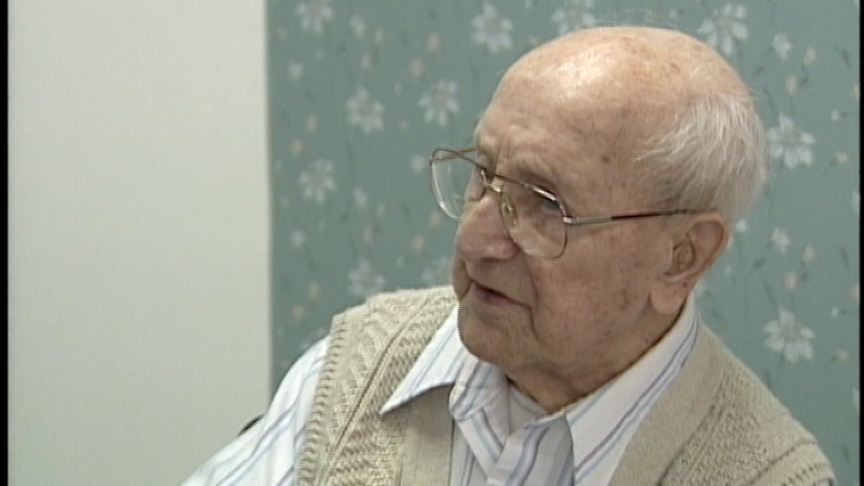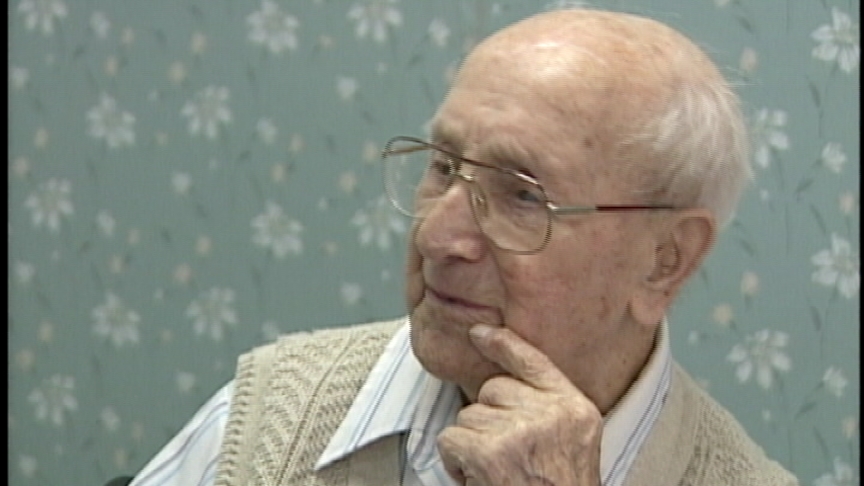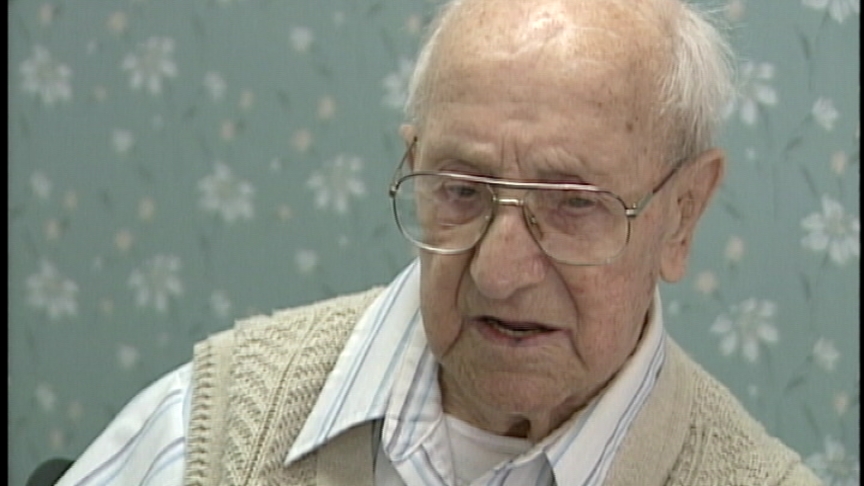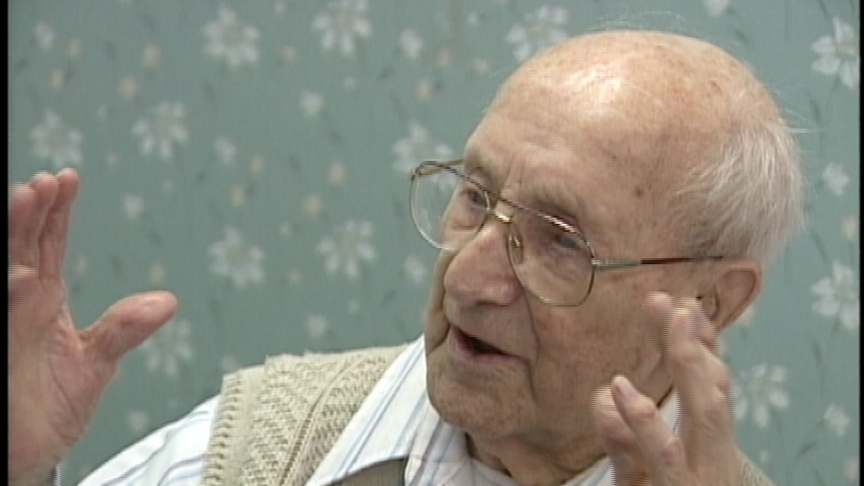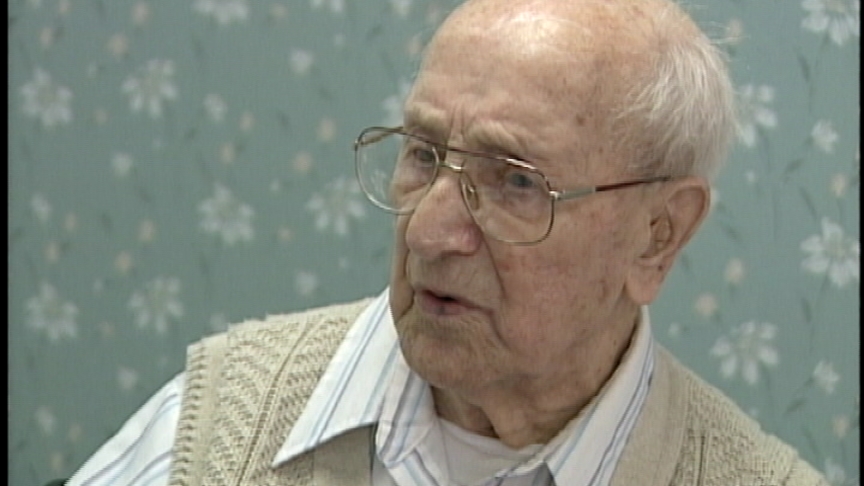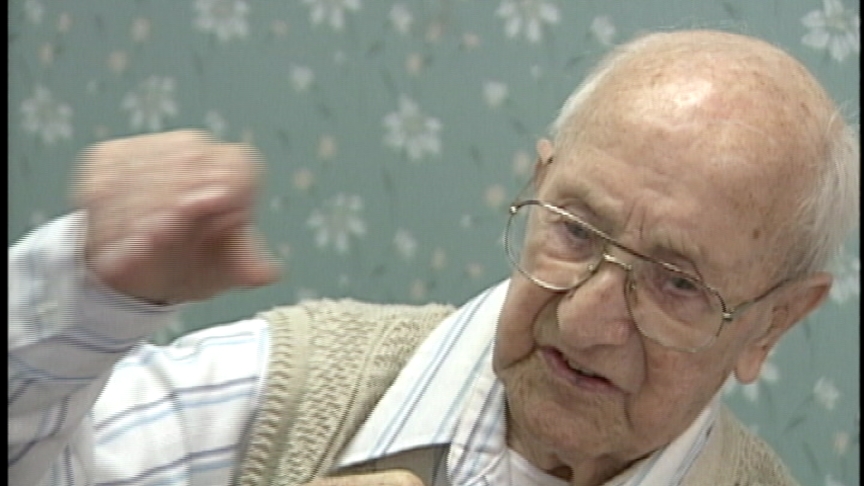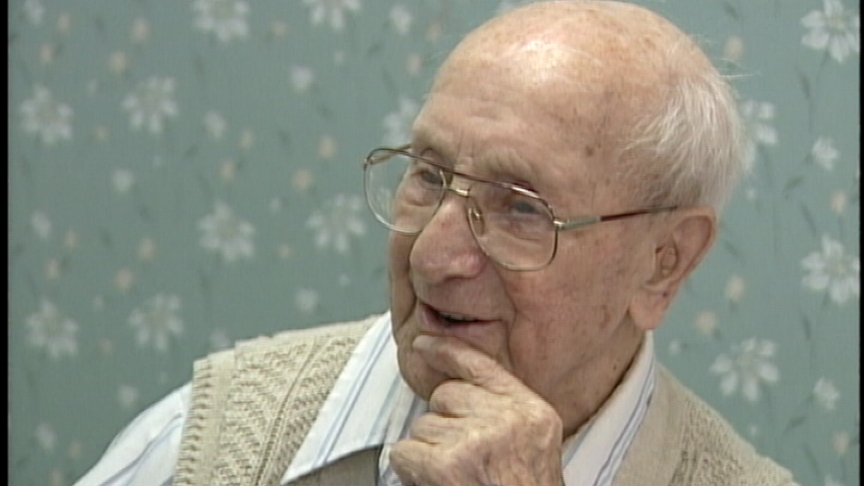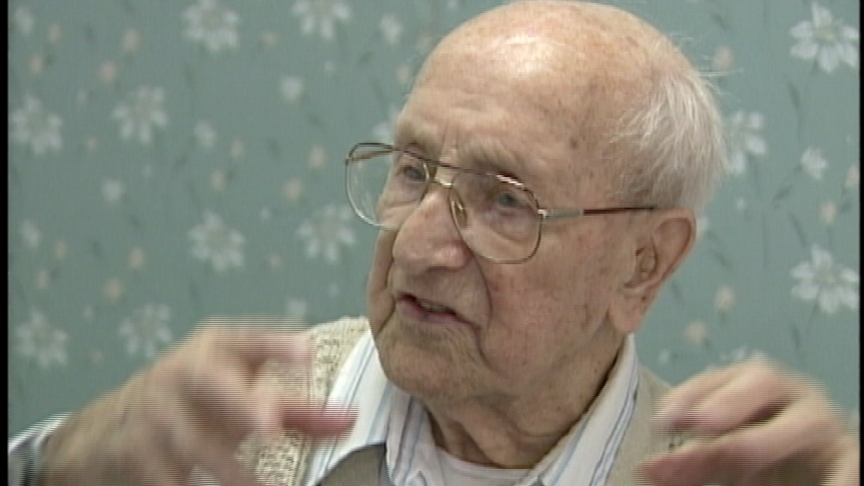German Citizens were Welcoming and Cooperative.
Heroes Remember
German Citizens were Welcoming and Cooperative.
Transcript
Oh the people, the very best. My gosh,
we went in to them people,
they went in and they put us up.
We was all winter with them.
We stayed there all winter.
We didn't come back until the next spring.
They would do all the feeding they could for
us and, of course, we got all the hard tack and
stuff that we could get for them and help them out.
The, what do you call it, bully beef,
ya we got cans and boy, they was tickled with that.
That helped them and they was just as good as gold,
you couldn't beat them.
That old gal that was in our place, my they couldn't
do enough for ya. Yes, and the old gent too.
They were just as happy as they could be and,
you know, they used you good.
They used you the same as if you were in the family.
Description
Mr. McLeod discusses the Army of Occupation being billeted in German homes during the winter. He describes sharing food with civilians and, in his case, feeling welcomed like family by his German hosts.
Russell McLeod
Russell McLeod was born on October 9, 1899 in Liverpool, Nova Scotia. His father was a fisherman, and prior to his enlistment, they fished together. Mr. McLeod joined the 219th Battalion in 1916 and trained at Camp Aldershot, Nova Scotia. He was sent overseas that fall, and joined the 25th Battalion in France. He served during Canada's 'Last Hundred Days', seeing action at the Hindenburg Line, Cambrai and Mons. After the armistice, he served as a member of the Occupation Army in Germany.
Meta Data
- Medium:
- Video
- Owner:
- Veterans Affairs Canada
- Duration:
- 1:03
- Person Interviewed:
- Russell McLeod
- War, Conflict or Mission:
- First World War
- Branch:
- Army
- Occupation:
- Signaller
Related Videos
- Date modified:



